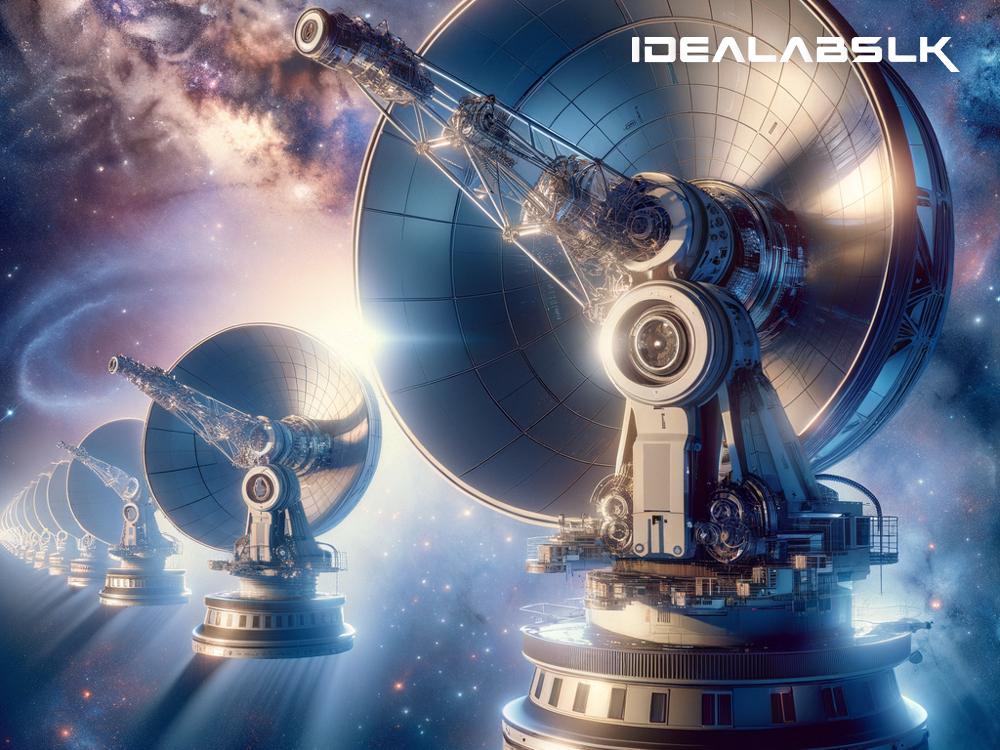Unlocking Cosmic Secrets: The Next Generation of Space Telescopes and the Dawn of the Universe
When you look up at the night sky, you're not just seeing stars. You're looking back in time. Light travels at a mind-boggling speed, but even at that velocity, it takes time to reach us. That means whenever we gaze upon the stars or deep into the abyss of space, we're actually seeing light that has traveled across the vast expanse of the universe to get to us. But what if we could look even further back? What if we could witness the universe in its infancy? Well, brace yourself for an exciting future because, by 2025, the next generation of space telescopes is set to revolutionize our understanding of the early universe!
Why Fresh Eyes on Space Matter
To appreciate the game-changing nature of upcoming space telescopes, it's key to understand their predecessors' limitations. Current telescopes, as powerful as they are, only offer us glimpses of the universe's childhood. It's like trying to understand the plot of a movie by watching a few scattered scenes. To get the full picture, astronomers need better tools - enter the new fleet of space telescopes.
A New Dawn with the Next-Generation Telescopes
Circa 2025, several cutting-edge telescopes will take to the stars, each with capabilities far beyond what we've had thus far. Unlike their predecessors, these telescopes are designed to peer even deeper into the cosmos, effectively pushing the boundaries of time and space. Here's how these futuristic observatories will change the game:
-
Sharper and Deeper Images: First up, imagine telescopes with vision sharp enough to spot a butterfly on the moon! While that's an exaggeration, the next-gen telescopes will indeed provide unprecedented clarity and depth. They'll capture images of the earliest galaxies in astonishing detail, unveiling how they formed and evolved over billions of years. This leap in image clarity is akin to switching from a blurry, black-and-white TV to crystal-clear, 4K resolution.
-
Peeking Through Cosmic Clouds: Many secrets of the early universe are hidden behind cosmic dust clouds, opaque to current telescopes. The upcoming observatories will employ advanced technologies to penetrate these veils, revealing the cosmic phenomena lurking behind. This capability will allow scientists to study the birth of stars and planets at the dawn of time, offering clues about the origins of the universe.
-
Mapping Dark Matter and Energy: Dark matter and dark energy are the universe's biggest mysteries, making up about 95% of its total content. The next-gen telescopes will be equipped to map these elusive entities more accurately than ever before. Understanding dark matter and energy is crucial for unraveling the universe's fate, and the upcoming missions could provide breakthrough insights.
Transforming Our Understanding of the Early Universe
So, what does all this mean for our understanding of the universe's earliest days? Essentially, we're about to get a front-row seat to the most spectacular show in existence: the evolution of the cosmos.
-
Birth of the First Galaxies: We'll witness the formation of the first galaxies, understanding how they emerged from cosmic darkness to light up the universe. This could also shed light on how supermassive black holes, which lurk at the centers of galaxies, form and grow.
-
Star Formation Secrets: The processes through which the first stars ignited and how they shaped the formation of subsequent stellar generations will become clearer. These insights can tell us more about the elements found on Earth and within our bodies, as we are literally made of stardust.
-
Clues to Life's Existence: By analyzing the atmospheres of exoplanets (planets beyond our solar system) in greater detail, these telescopes could identify planets with conditions suitable for life. It's a long shot, but we might even find signs of life beyond Earth.
A Unified Quest
The next-generation space telescopes are more than just sophisticated gadgets; they are humanity's eyes, reaching across the cosmos to unlock its oldest mysteries. By 2025, these observatories will not only enhance our understanding of the early universe but also remind us of our shared quest for knowledge, our endless curiosity, and our drive to explore the unknown.
As we stand on the brink of this exciting era, we can't help but wonder what secrets of the cosmos we're about to uncover. The next few years promise to be a revolutionary period in space exploration, transforming not just our understanding of the universe, but our place within it.
Stay tuned, because the journey into the cosmic dawn is just beginning, and it promises to be a breathtaking adventure!

